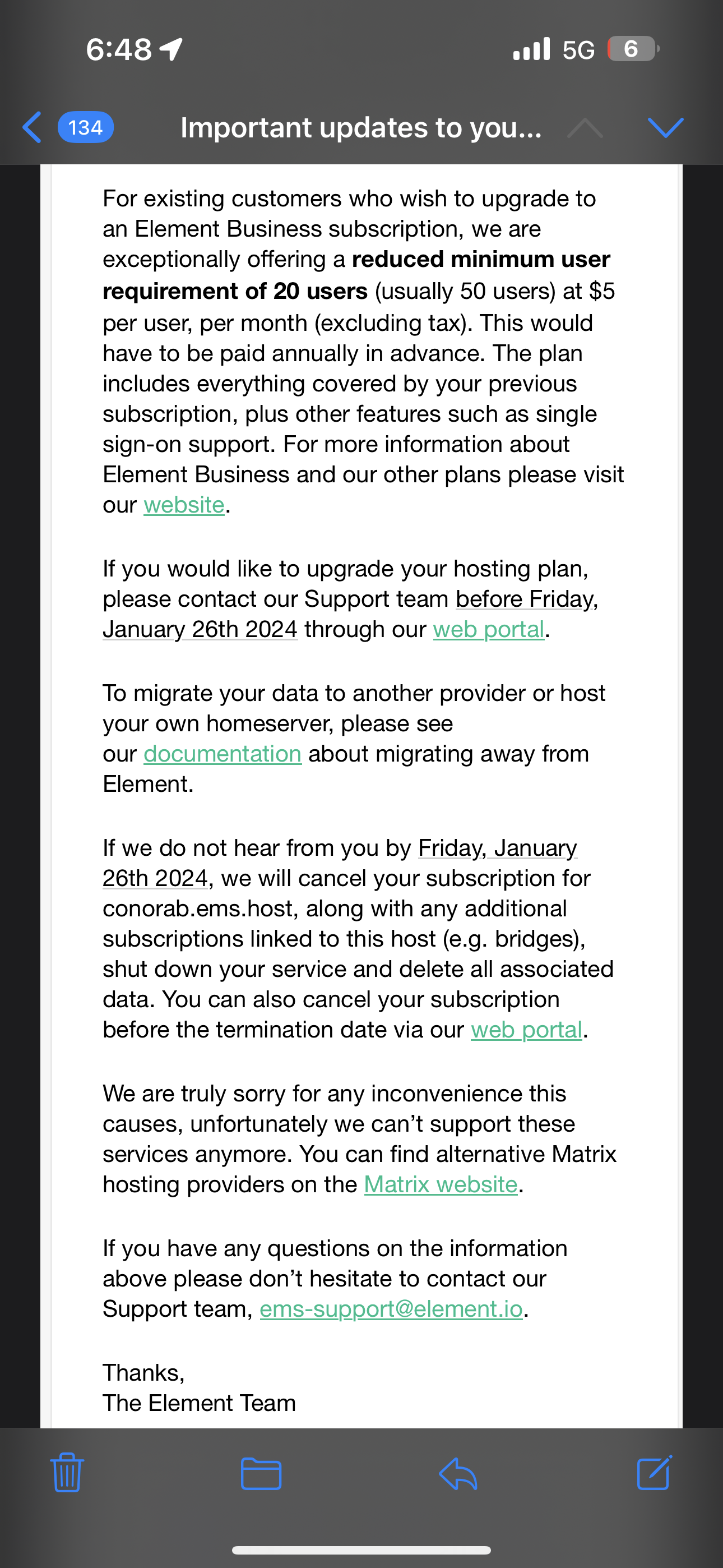I’m guessing Steam decided against being able to leave your games to somebody else when you die because of how most EULAs I’ve read work: they are often non-transferrable licence and so in most cases the store has no choice in the matter. Now GOG are willing to say they will do what they can given this limitation, but I can see why Steam wouldn’t: it’s a whole lot of work for realistically not much benefit. It’s probably easier for Valve to gift the same games over to the new person.
conorab
Adding to this: doesn’t CAD usually want 3D acceleration? I would definitely try running the CAD software with the same VM configuration you plan to use in your Proxmox VPS first before progressing to make sure it (a works at all and b) is responsive enough. You could even try nesting Proxmox in Proxmox to emulate the kind of performance you’d had on a VPS.
For reference, the 1TB Steamdeck OLED at Gamesmen is $450 AUD more than what Valve will be selling it at. Unless I’m mistaken, Gamesmen are the only retailer selling the Steamdeck online that isn’t a marketplace (such as Big W), so Gamesmen is probably the best place to but at the moment since they will be forced to take on any warranty claims unlike resellers on marketplaces which may able to just dodge that by closing up shop.
SnipeIT just cares about serial numbers, models and manufacturers (you can just use a serial number in the asset tag section) for assets and I think consumables drop a bunch of those requirements. You might be able to put groceries under consumables? I’m less familiar with consumables in SnipeIT to be honest.
SnipeIT is really good and supports SSO including via LDAP.
They don’t need to be interested though. You could conceivably dump all the password you collect in an attack and just start trying them automatically like you would any other breach. Find a bunch of bank accounts and your chances you getting away with millions are high. Not to mention: a breach like this means changing all your saved passwords to re-secure them which is a multi-day affair.
Self-hosting removes the risk of somebody compromising Bitwarden’s servers and adding malicious javascript to send off your master password to a bad actor instead of just processing it locally like it’s designed to.
I don’t think ZFS can do anything for you if you have bad memory other than help in diagnosing. I’ve had two machines running ZFS where they had memory go bad and every disk in the pool showed data corruption errors for that write and so the data was unrecoverable. Memory was later confirmed to be the problem with a Memtest run.
What distro and version of that distro are you using? Did you install gpg from the repository or elsewhere? What version of gpg are you running?
The OOM killer is particularly bad with ZFS since the kernel doesn’t by default (at least on Ubuntu 22.04 and Debian 12 where I use it) see the ZFS as cache and so thinks its out of memory when really ZFS just needs to free up some of its cache, which happens after the OOM killer has already killed my most important VM. So I’m left running swap to avoid the OOM killer going around causing chaos.




PatchLess